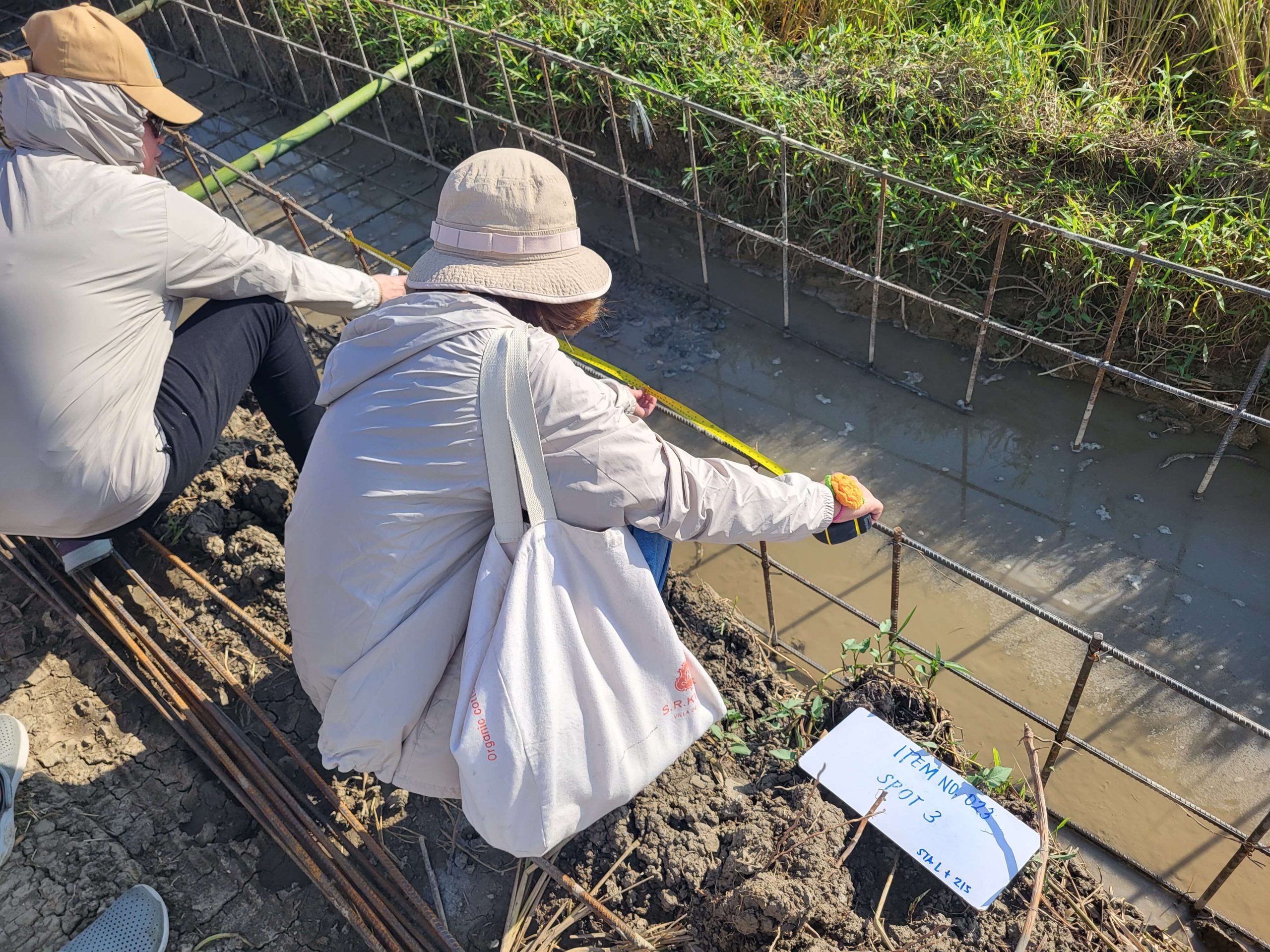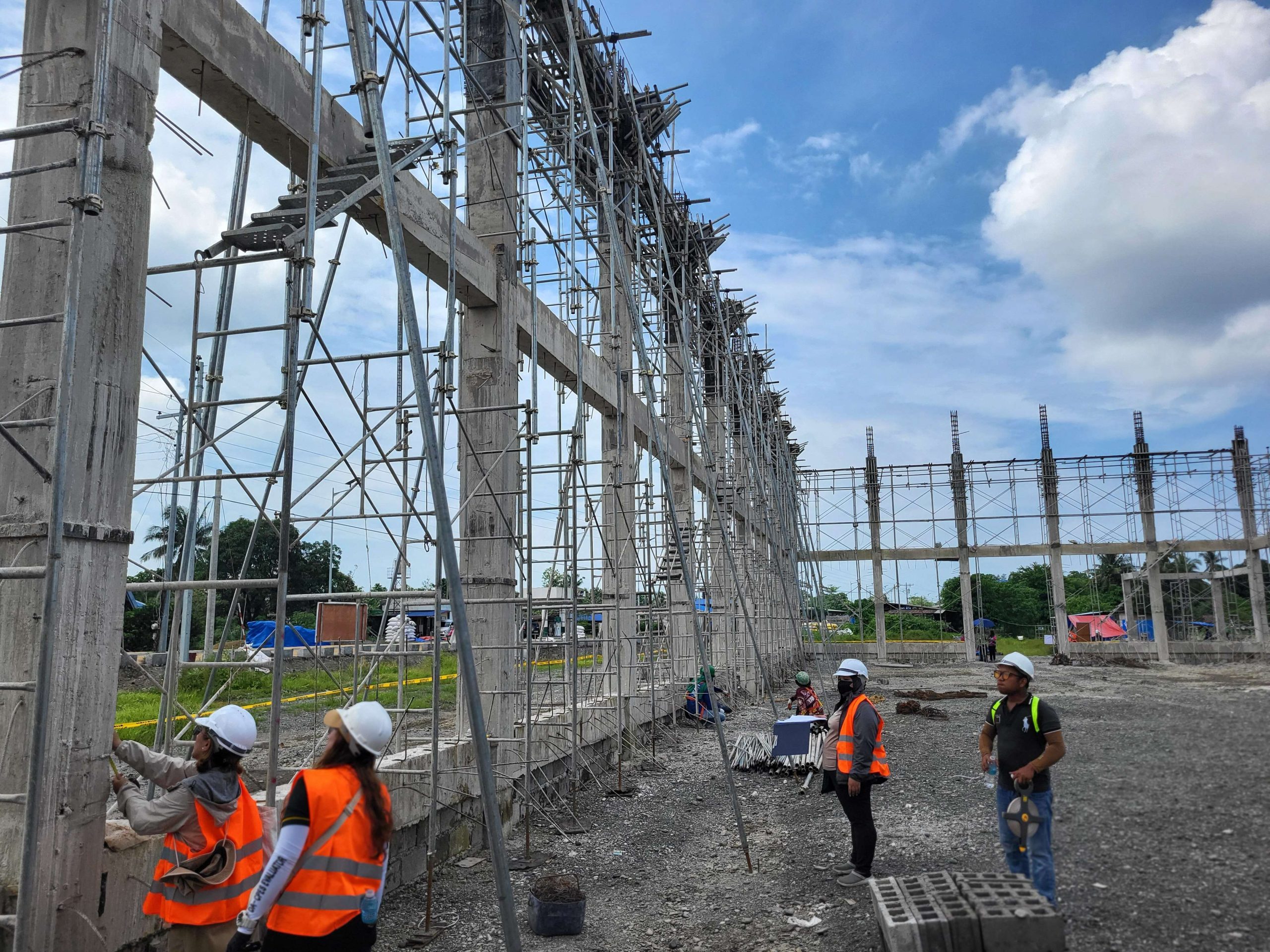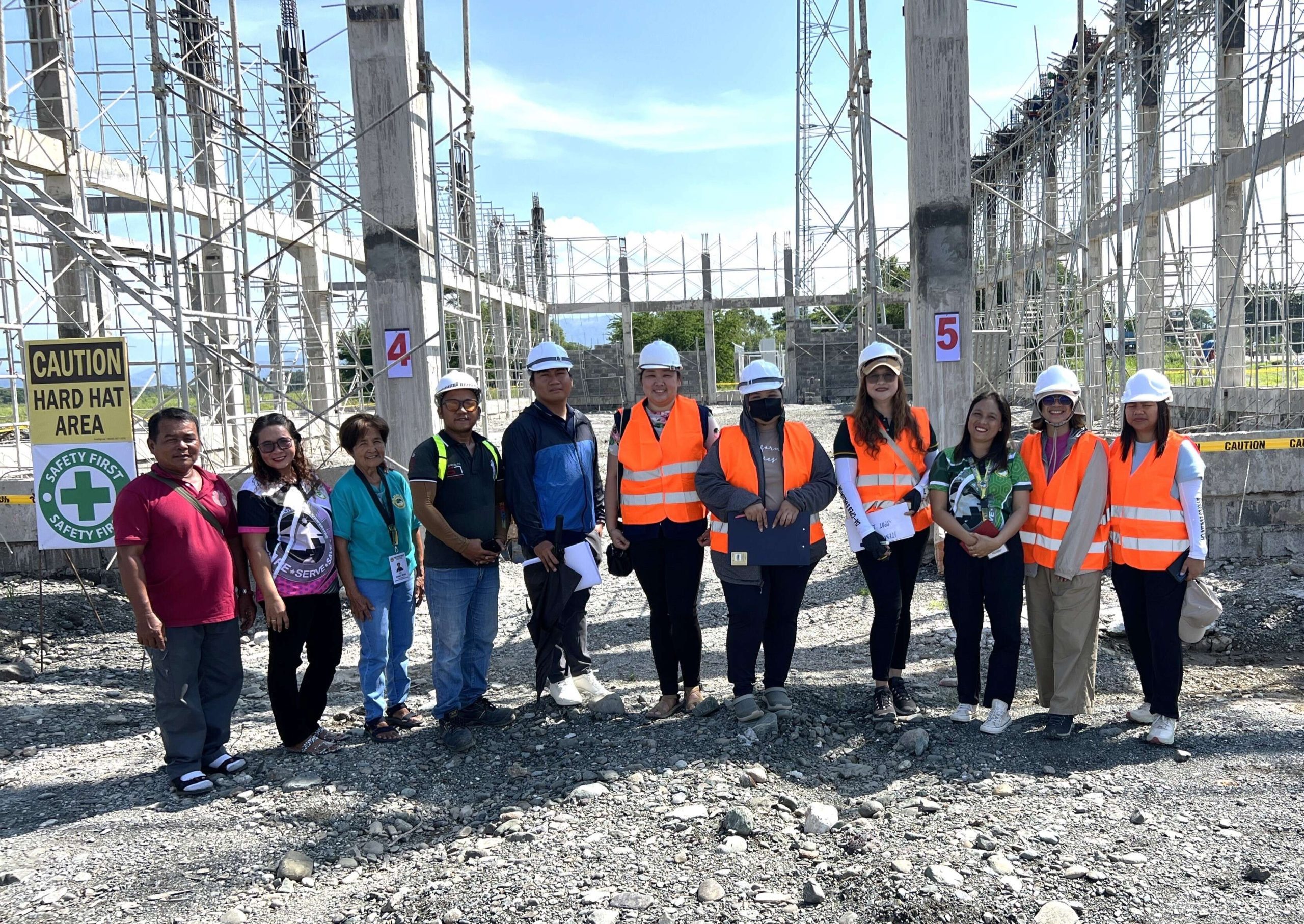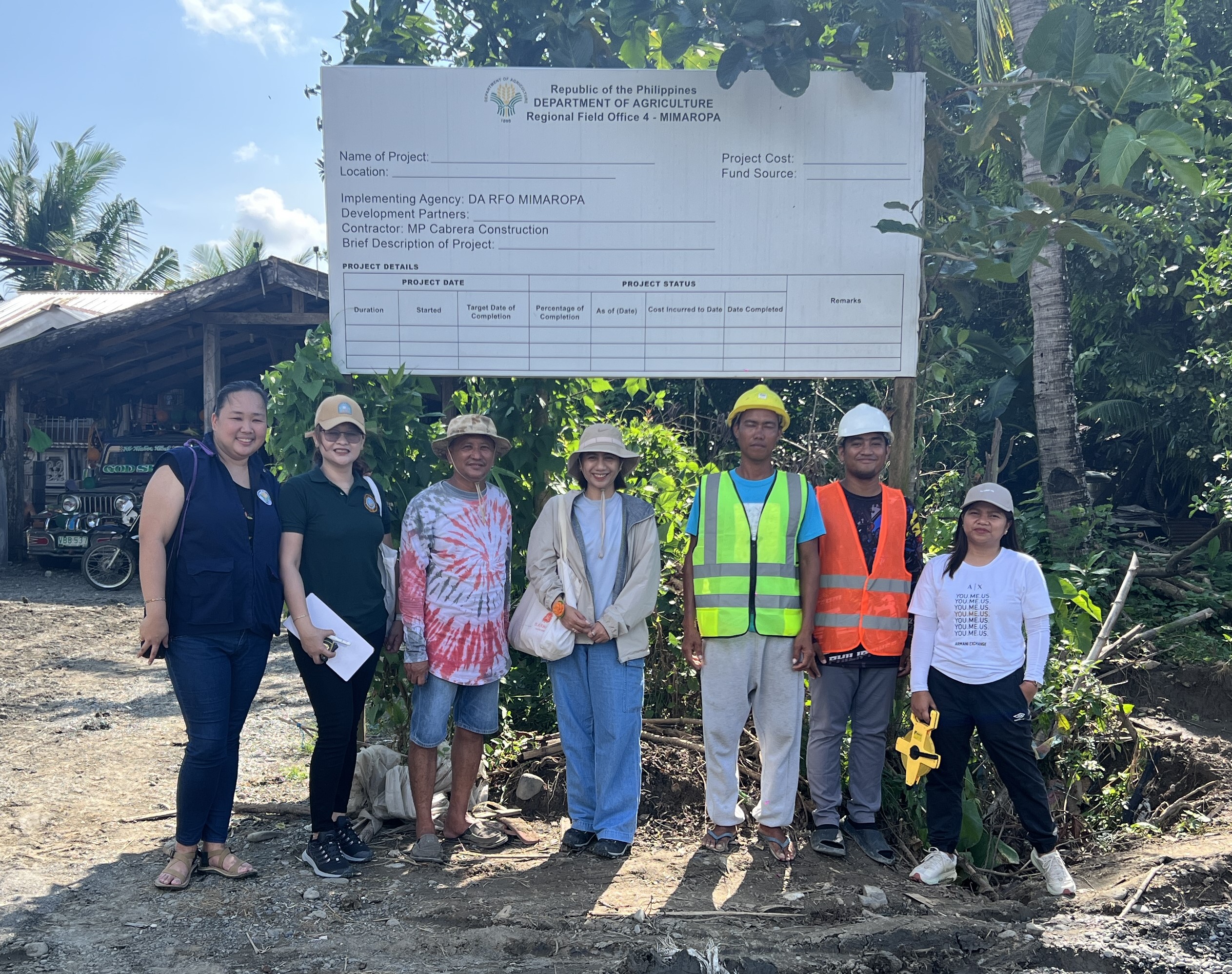
The Philippine Council for Agriculture and Fisheries (PCAF) spearheaded the conduct of the Department of Agriculture-Constructors’ Performance Evaluation System (DA-CPES) on two agricultural infrastructure projects funded by the National Rice Program in MIMAROPA on October 7-11, 2024. These projects involve the construction of the Batasan Diversion Dam in San Jose, Occidental Mindoro, and the establishment of a Rice Processing Center III-Warehouse in Brgy. Sablayan, San Vicente, Occidental Mindoro.
On October 7, PCAF facilitated an entry conference that brought together the DA-CPES Team, the constructor’s representatives, and the DA-Regional Field Office (DA-RFO) IV-B officials and technical staff. The DA-CPES team, led by Engr. Peachie Melendez from PCAF, was composed of Engr. Rose Ann Acunin from DA-RFO Cordillera Administrative Region, Engr. Jessa Rica Pandino from the Bureau of Agricultural and Fisheries Engineering (BAFE), and Engr. Mara Segreid Bustos from PCAF.
Atty. Christopher Bañas, Regional Executive Director of the DA-RFO IV-B, expressed his support for the DA-CPES, noting that while he was still familiarizing himself with it, he was confident in its ability to assist both the DA and constructors in delivering timely and high-quality projects. He highlighted CPES’s role in facilitating eligibility checks and blacklisting of underperforming constructors. He expressed strong support for the initiative, recognizing its value in ensuring accountability.
Engr. Bustos then provided an extensive overview of the CPES framework, outlining its legal foundations, objectives, and benefits. She urged constructors to strive for a “Satisfactory” rating, which will soon be a requirement for future DA infrastructure bids. The focus of the evaluation process is to foster improvement rather than to penalize, with Bustos encouraging constructors to view the assessment as an opportunity for growth.
Likewise, Engr. Melendez emphasized the CPES’ aim to support constructors in enhancing their project execution quality and assured participants that the evaluation would be evidence-based and objective.
Engr. Anya Marica Avelino, CPES focal person and Chief of the Planning and Monitoring Section of the DA-RFO IV-B, also provided a detailed report on the ongoing projects to be visited. While three projects were initially slated for evaluation, the installation of Sampaguita Solar Powered Irrigation System was excluded due to its 90% completion status. As per the DA-CPES guidelines, constructors must be evaluated in two phases: one during construction and another upon project completion to ensure that their performance and output meets the required specifications throughout the period. Since the constructor was not evaluated during the construction phase, it was excluded from the assessment.

An exit conference was held in Calapan City, where Engr. Pandiño and Engr. Acunin presented evaluation results for two projects visited.
Engr. Bustos concluded with a discussion of Corrective Action Requests (CARs) issued for noted non-conformances, urging constructors to submit their Corrective Action Plans (CAP) to the DA-RFO IV-B Regional Agricultural Engineering Division (RAED). Once implemented, the CAP will be assessed by RAED representatives, who will also require photo and video documentation of the items.
Engr. Annielyn Del Rosario, Chief of the DA-RFO IV-B RAED, and Engr. Melendez both expressed gratitude to the DA-CPES Team, constructors, and all stakeholders for their collaboration in this activity. They highlighted the significance of CPES in fostering accountability and improving the overall quality of DA’s infrastructure projects, emphasizing that constructive feedback would ultimately benefit all parties involved.


As DA RFO IV-B embraces the DA-CPES, the focus remains on collaboration and continuous improvement, ensuring that the region’s infrastructure projects meet the highest standards of quality and efficiency. | Text by Joy Camille Luza, with reports and photos from PCAF PDCD-AFMISS











